He started his Hindi film career by working with perhaps the most sought-after filmmaker in the country. Ever since, he has remained visible, constantly appearing in unconventional and ‘offbeat’ films, amidst a slew of popular ads and stage plays.
A few days after the release of his latest film, the unorthodox ‘social media thriller’ Mona Darling, Anshuman Jha — the young, well-spoken actor who has already donned the producer’s hat for this one — sits down to have a contemplative chat with us.
Here we go.
An Economics degree from St. Xavier’s College, Mumbai to professional acting — is there a reason so many from this college go on to pursue a career in arts? Despite your initial aspirations and theatre experience, I’d like to think there can be no better college to accelerate such ambitions…
AJ: Xavier’s is indeed a way of life. But I merely studied Economics (as much as I love the subject) to fan my theatrical ambitions. I had started coming to Prithvi Theatre (Juhu, Mumbai) for Summer-time acting workshops since I was 13, and it became a 3-month-a-year routine for me. So after finishing Barry’s Diploma course back in Delhi (which one of my summertime workshop gurus Atul Kumar had suggested I do before leaving Delhi), I wanted to move base to Bombay to pursue acting. My mother, like all middle-class mothers averse to the thought of a career in films for their son, told me that if I scored well in my 12th & got into Xavier’s, I could go. So I studied hard, topped South Delhi in Arts and got into Xavier’s. And finally moved base. I had already acted in a few plays at Prithvi, so I knew some people. And the Literature & Culture atmosphere at Xavier’s only added to the fire. There indeed is no better college for a life experience for anyone. If you are an artist, even better. While at Xavier’s, I ended up acting in “Kindertransport” (Q Padamsee), Chotu (Joy Fernandes) along with assisting on Ad Films (Gaur Shinde, Ram Madhvani and Ashim Ahluwalia). Post which I produced & directed “Mr. Kolpert,” an English Adaptation of a German play which had me hooked for a long time, again a play gifted to me by Atul Kumar. It won me Best Director at THESPO , the youth fest, in 2005. And the fire started burning brighter. The more I was learning, the more I was getting hungrier. I got a lot of support from friends at Xavier’s to begin First Ray Theatre Group. Which is now First Ray Films. So yes, the seed was sown at Xavier’s. There is something in the air and the “woods” of Xavier’s.
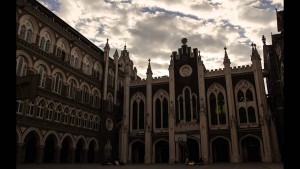
Tell us about your early theatre days — and how your family in Delhi took to your acting bug. Was there a particular moment you remember where you decided to pursue this career?
Cricket and Theatre were a big part of my teens. From age 13 to 16, I came to visit my sister who lived in Mumbai, and since she used to work during the day, she had me enrolled at Summertime at Prithvi Theatre. I fell in love with the place. I used to be signed up for two workshop sessions — 10 to 12 & 3 to 5 — and in between, from 12 to 3, I would hang around Prithvi, backstage. I’d watch Makarand (Despande), Satyadev Dubey ji rehearse and talk. Ate lots of Samosas and Gulab Jamuns at the vintage Prithvi Cafe, which was nothing like what exists now. Ramnath Tharwal, a senior Hindi play director, spotted me in his Basic Acting workshop. He was producing a play called “Jhagrapur” and asked me to work in it. Since I was based out of Delhi, I could only give 3-4 months to Bombay, during which I made my stage debut at Prithvi with “Jhagrapur,” followed by “Lalchi” in the next year. The workshops are till age 16, so when I was in my last year I told Atul Kumar, with whom I had done three back-to-back years of theatre and sports, that I wouldn’t be able to come the next year but wanted to shift to Bombay full-time to pursue theatre. He told me to do Barry John’s Diploma Course before I left. So I went to meet Barry in Noida, and he said his course was only for adults. I was 16. So I went six months later, after turning 17, and begged him to allow me to do his course because I wanted to leave for Bombay. He refused, telling me to wait another year. I sat outside his office for three hours one day, and he finally gave in. I did his course while in class 12th. At the end of which I was cast in his play “It’s All About Money, Honey”. I had also just started playing “A” Club Cricket with Sonnet, and was selected for the Delhi U-19’s. And as destiny would have it, the cricket team had to travel to Gwalior, and on the same dates Barry’s play had to travel for a Theatre Fest to Jammu & Kashmir. I had to decide what I wanted to pursue right then. So I left the cricket team to go to the theatre fest. The rest is history!
Were you ever told, on coming to Bombay, that you don’t have the “looks” or “voice” to become a conventional Bollywood ‘hero’? Of course there is no such thing anymore, but things were different 10 years ago…
Oh, hell yeah. I still get the ‘looks’ part even now. In fact, a leading film maker (wont name him) threw my portfolio pictures in a bin when I was 18. But while chucking them, he suggested I work on films as an assistant director (AD) because I looked too young and wouldn’t find work till my mid-twenties. I took his advice and started assisting on features. I had directed a docudrama called “Life On Four Wheels” (on the life of Taxi Drivers in Mumbai, some of whom actually became actors), which had been selected at the National Documentary Festival. Mr. Subhash Ghai read a piece on it in the Express and asked his assistant to call me. I guess that’s destiny. I am a huge fan of ‘Khalnayak’ but I’ve never been in awe of anyone (the only hero I have is Sachin Tendulkar, probably). So I trotted into his office excitedly. He said, “you are too confident for a 19-year-old. But I like it.” He then told me about how he was trying to make a small film called “Black & White” and how he wanted to work with newer talent. It was a dream come true, as I had done 40-odd ad films by then as an assistant. This was just what I was looking for, to gain experience, to learn on the job, on a film set. So I lapped it up. Mr. Ghai never told me to quit acting, but he encouraged me to pursue direction because he felt I had an understanding of scripts. But in my head I was clear: I was working on a film set to learn various aspects in order to become a better film actor. The fact that I turned out to be a fine assistant is only incidental. I set a timeline in my head of five years. To assist, learn, make money (I’d charge decently for assisting) so that I could support my ‘struggle’ days as an actor. This could last long, which is something I had also observed with actors at Prithvi. So age 23 was the magic number — I decided to begin looking for acting work after I, hopefully, started looking a little older. And I got ‘Love Sex Aur Dhokha’ at 23. I guess I can say it all went to plan. But there has been a light that has been guiding me. I’ve always felt that way.
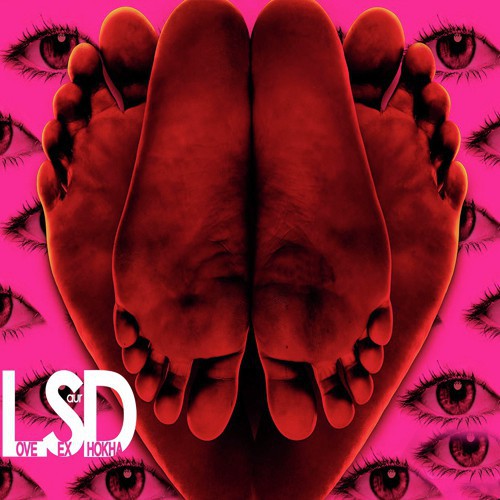
To have a Dibakar Bannerjee film as your debut (LSD), did your own expectations from your career change after that? What was the immediate aftermath like?
My expectations were the same before LSD, during LSD and after LSD. A fact: while walking out of PVR Juhu after watching “Oye Lucky! Lucky Oye!” I had told my girlfriend that I wished for a chance to work with Dibakar Bannerjee. I had a wish-list: to either begin with Dibakar, Anurag Kashyap or Sriram Raghavan. And I feel grateful that I got a chance to start with under DB with LSD. I was representing India at the World Theatre Festival in 2010 with my devised play “Dirty Talk,” so I left for the UK after LSD’s release. A lot of people felt I shouldn’t have done so. After all, it was the release of my debut Hindi film. But theatre has been my lifeline as an actor. And the World Theatre Fest experience at Manchester was extremely enriching as an artiste. I came back and was flooded with ad-film offers because of the critical acclaim in LSD. I didn’t do all. I feel that even ad films have stories to tell, so scripts there as well become very important. I did about 10 campaigns and left as many. I signed up for TataSky for a year and shot for the “Poochne Mein Kya Jaaya Hain” campaign in Bulgaria. Six ads over a year, but all great scripts ( https://www.youtube.com/watch?v=FQKZD8fRANg ). I did Brooke Bond with Anupam Kher directed by Shoojit Sircar (https://www.youtube.com/watch?v=51Pas3vZ8DY), followed by a KBC Campaign with Mr.Bachchan ( https://www.youtube.com/watch?v=2NQ3VkuGSeg ) directed by Amit Sharma and Pepsi with Kevin Pietersen directed by Prasoon Pandey (https://www.youtube.com/watch?v=blWXVo1d3EE).
I haven’t ever been very social, nor do I follow up or make overtly keen relations with casting directors. I earnestly test and then hope for the best. In fact I love auditioning, and have auditioned for some of the best ensemble films in that period, but because I looked younger then the rest of the cast, they didn’t pan out. “Kismet, Love, Paisa Dilli” came my way and I had loved the director Sanjay Khanduri’s previous film “Ek Challis Ki last local” a lot, so I instinctively went for it. But the paper didn’t translate to the film I expected. Strangely, Mona_Darling was one of the first few scripts I heard after LSD’s release. Shashi had narrated it to me in 2011, and a leading studio was backing it back then. But it kept changing hands and wasn’t getting made.
Mona Darling is your seventh film in as many years. Given that you experiment with independent genres quite a bit, did you ever expect more mainstream work coming your way?
Yes. I wish for mainstream work. Now even more, as I have taken a conscious sabbatical from stage in Bombay. I stepped out of my two running plays in Mumbai “Dirty Talk” and “The Boy Who Stopped Smiling” because the date clashes between shows and shoots would often crop up. I was missing out on good film work. I began 2016 with a drive to focus on films more and ended up shooting for 4 films last year. A nice mix of independent & commercial fare. “Mona_Darling,” “Angrezi Mein Kehte Hain” with Sanjai Mishra, Nandita Das’s “Pagla Ghoda” and Ashvin Kumar’s “Noor”. The only running theatre production that I’m currently in is India’s biggest Bollywood musical at The Kingdom Of Dreams in & as “Jhumroo”. I perform one weekend a month for this. And I need to keep doing one play as theatre is my ‘riyaz’ as an actor. Also, a musical was on my to-do-list and this one’s a grand production which really pushes me physically with over 10 songs and three hours on stage — each show is like scoring a 150 in a cricket match. The song-and-dance is a lot of fun and I truly enjoy doing it. Also, I’m a trained dancer, a black belt in taekwando and these are skills I use in physical theatre on stage. Now I wish to explore them on screen through good scripts in mainstream films. Luckily there are quite a few being made these days. Hopefully, I get a chance to explore these ambitions on the biggest screen possible.
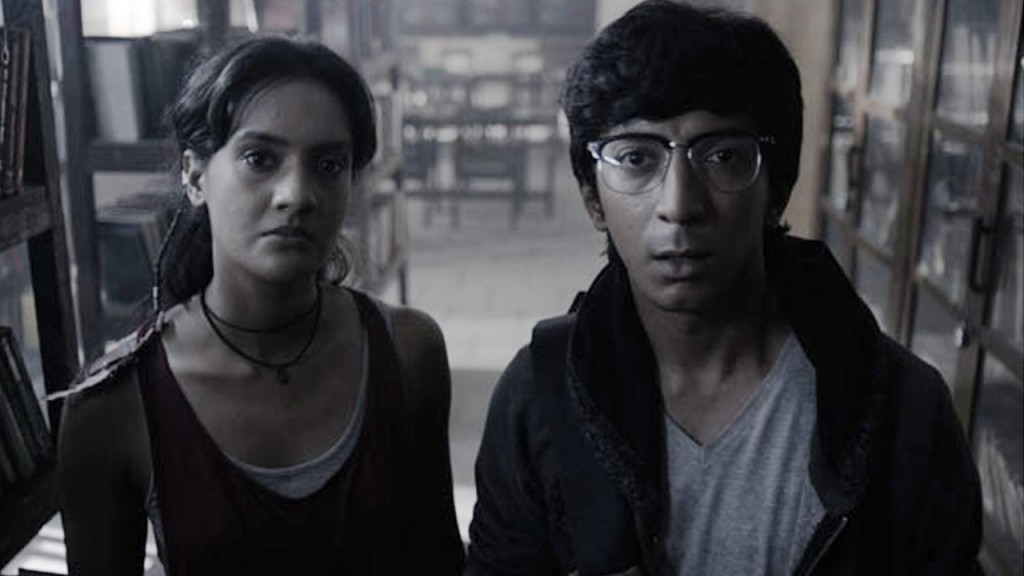
As ‘Wiki’ in Mona Darling
How did you bag this role? Tell us a little about the process.
Shashi Sudigala, the writer-director had loved LSD and narrated this script to me in 2011 as an actor. He pitched it as “Sheldon Cooper meets Benedict Cumberbactch” and I absolutely loved the treatment of the film. I love thrillers, and this was a well-written whodunnit. Something novel. Also, though it was genre-breaking (as there was a bit of paranormal meets sci-fi), the grammar was correct. So I agreed to play the role of Wiki. Then the film got pushed and kept changing hands. Until in December 2015, I was worried that someone else might make a movie on social media, as the script had been in the market for 4 years. I told Shashi I will back it. And I found a way.
How often do you audition? What’s the culture of auditioning/waiting like for you? You’re seen in quite a few ads now…
I do audition once in a while for ad films, because ‘how old I look’ is always an issue. A good audition, irrespective of landing the part or not, will make you a better actor because you learn something with each new script. I believe each audition is like one drop at a time in the ocean and must be taken very seriously. I would like to audition more for films because I really enjoy it.
I had auditioned for LSD & the process was memorable. It was detailed, there was a workshop, much like a play, so there was very little room for not knowing what you have to do. Atul Mongia, who was the casting Director on LSD, is one man I love and respect for the way he understands actors. Abhishek Bannerjee is another casting director who personally takes interest in auditions and gives it time and preparation. The Mukesh Chhabra Casting Company is of course doing a lot of good work and giving enough space to actors.
I remember auditioning for “Life Of Pi”. It was one of the most enriching processes of my life. An audition is a good gauge for actors to get a deeper understanding of scripts and re-assess their own craft — provided one is objective. I don’t look at it as waiting. I look at it as time for value addition, as eventually it will all pay off. So I train in something new, like how I have produced this film having lent on my behind-the-camera experience. After LSD, I trained in parkour and kalari, and ended up using some of it in the action sequences of KLPD and in the wire work as Jhumroo.
So when someone asks me, “What are you upto?”, my response is usually “I’m working on myself”. Because that’s what the wait eventually is, provided you look at it that way.
Do you have a wish list of filmmakers you want to work with? In addition, do you ever think of getting behind the camera?
I love Zoya Akhtar and the flavour of her cinema. Of course Rajkumar Hirani, Sriram Raghavan, Vishal Bhardwaj and Anurag are people I would give an arm and leg to work with. Additionally, I would love to act with directors who I have assisted. So Ram Madhvani, Gauri Shinde (I was her AD in her first ever ad film), Ashim Ahluwalia and Subhash Ghai. The list is never ending.
Behind the camera — no. I love acting and want to focus on that. Do more. Get better. I have produced, because I didn’t want a script that I believed in to lost its way. So I will continue to produce one film a year, now that I have tasted blood. If I was enterprising enough to make Mona Darling, I will find a way to do this regularly. The idea is, it should be a win-win for all involved, along with a creatively satisfying process.
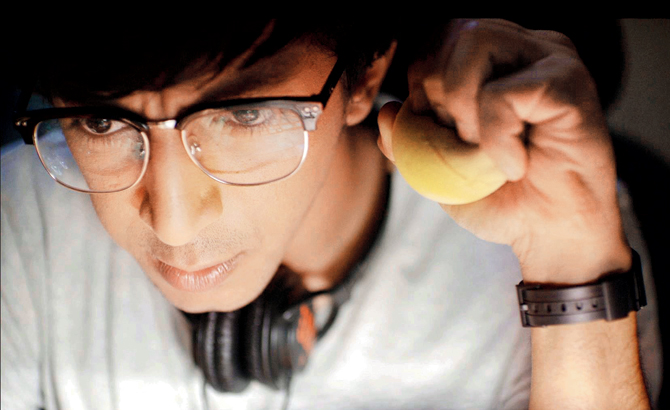
What kind of cinema interests you as a viewer? And how much do you let your real-life experiences/relationships affect your growth as an artist?
I like all genres. I don’t look down upon anything. I have grown up in the 90’s & early 2000, so I have grown up watching Tridev, Mohra, Bombay, Kuch Kuch Hota Hai, and loving them. But while at Xavier’s, and when I worked with the above mentioned makers as an AD, I was exposed to an “Amores Perros” or a Wang Kar Wai and Kurosawa, and I absolutely love these filmmakers too. So as a generation, I feel we are blessed to have had the best of both these worlds. A blend of both is what interests me — a grammatically correct bridge between universal stories told well. Last year I enjoyed Neerja, Airlift, Pink and Dangal, so I guess you can sense my bend.
The person and the actor is the same. So real life does affect your growth, but awareness is the key. You should know your switch-on and off buttons. Craft and skill is one thing as an actor. But your life experiences is what helps you evolve as an artist. I did Barry John’s Diploma course when I was 17, and I feel like doing it again after having experienced the last 13 years of my life. I will take something else out of it now, and perhaps look at the process with a different gaze, but unfortunately Barry doesn’t personally teach anymore. As an actor, the sub-total of your life experiences adds up to help you develop your art. That’s not to say you need to experience everything first hand. Even if you have been present at an event which directly doesn’t involve you, if you are an observant person, just the mere memory of it could help you anywhere at any time.
Do you read a lot of reviews? Given the stage background, is critical appreciation more important to you than BO numbers?
I read some reviews, because I respect the said individual’s understanding or because I enjoy reading their writing. But that doesn’t mean I take it as a radar of my success or failure. After you have done it for x number of years, and if you are distinctly self-aware of your craft, when you look in the mirror at night you know how good or bad you were. Like-minded people giving you a pat on the back for a job well done does feel good, but it’s not the end of the world or vice-versa. Because sometimes, a lot of personal prejudices are also at play which you might be totally unaware of. You in your heart need to know if you did your best. So I do my job with utmost honesty and sincerity, because that’s what I have been taught.
I also feel that stage is an actor’s medium and cinema is a director’s. So while you can rev up a mediocre piece of writing on stage through sheer craft, not so in cinema. Because a big part of your performance on screen is a sum total of many other variables: the writing, camera, edit, costumes etc. Hence, developing a perspective about my own performance and trusting my director is extremely important. Because my director is my God on a film set; s/he is creating the world, quite literally.
Critical appreciation is important, and so are box-office numbers, as I want to continue to do more films as an actor. Opportunities come because of both. The kind of work I wish to be a part of will only be possible if it’s beneficial to all. Cinema is an expensive art form, so you cant be self-indulgent, because someone is investing in you. You need to keep getting better and deliver — at the same time making sure the audience is getting their money’s worth. Admiration and appreciation is the eternal goal.



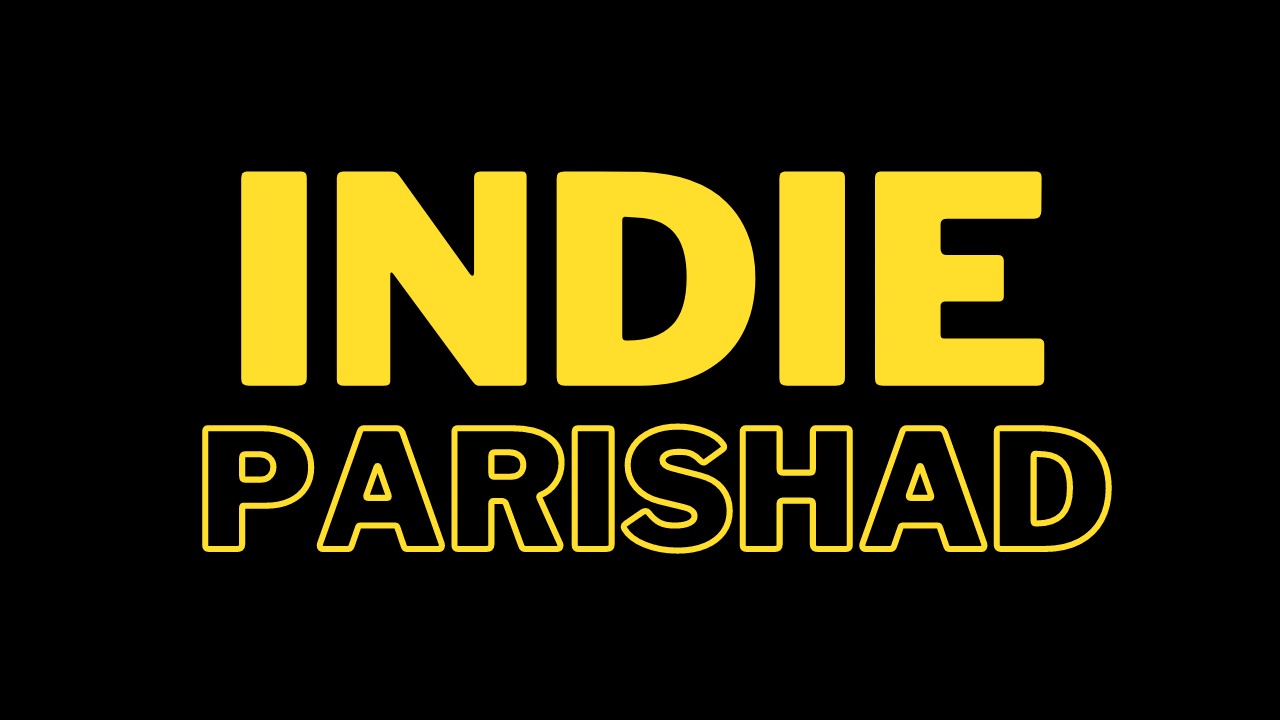
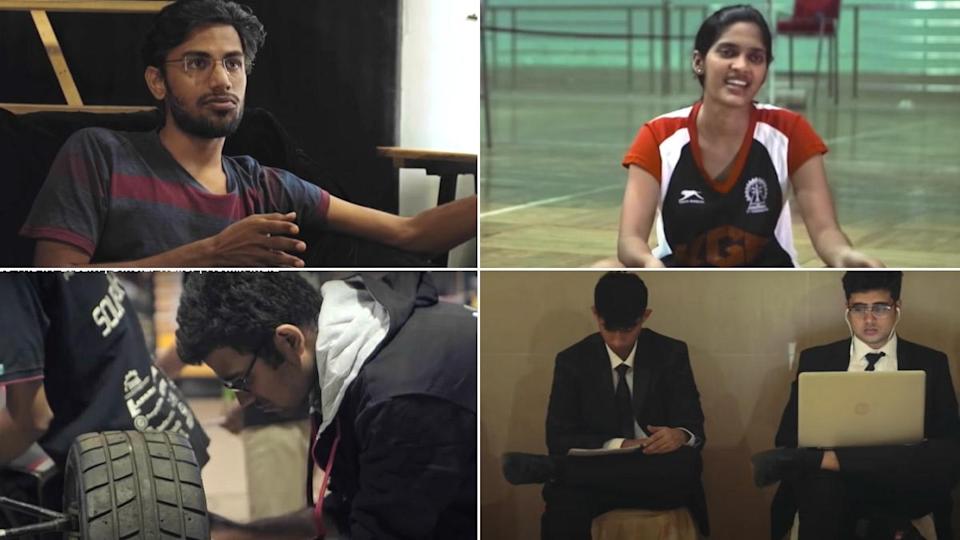
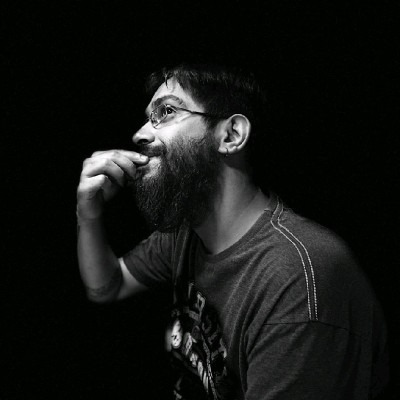



This guy is an under utilised talent. I wish to see more of him in cinema because you can actually watch him for 3 hours.Something endearing about him. and makes a good read. great interview.